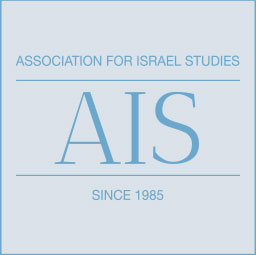By Raphael Cohen-Almagor
Israel Studies on American Campuses
The horrific Hamas attack on 7 October 2023 was a game changer for Israel, Hamas, and Gaza. On that fateful morning, hundreds of terrorists went out to Israeli towns, villages, and kibbutzim with the aim of murdering as many Israelis as possible, and to kidnap hundreds of civilians and soldiers. The terrorists shamelessly documented their atrocities in videos that quickly went viral. 7 October was the bloodiest day in Israel’s short history and, excluding the Holocaust, one of the bloodiest days in our long Jewish history.
Israel was quick to respond by launching a war against Hamas in Gaza, aiming to bring about its complete destruction. The war has led to increased attacks on Jews around the world. ADL reported that antisemitic incidents in the United States rose by 388% in slightly over two weeks after the attack by Hamas. Some of the threats and attacks take place on American campuses. Cornell University police opened an investigation of a series of antisemitic threats made against the Jewish community in online posts.
The Cornell Daily Sun reported threats to shoot Jewish students and encouragement to harm Jews. At Harvard, a coalition of 34 student organizations stated that they hold the Israeli regime entirely responsible for all the violence, ignoring the Hamas atrocities that sparked the war. I just returned from a visit to the University of Pennsylvania which has experienced an ugly wave of antisemitism that included threatening messages to Jews, swastikas, and other hateful antisemitic messages drawn on walls, and videos spewing hateful rhetoric. Those incidents prompted Penn President, M. Elizabeth Magill, to circulate a memo to the Penn community in which she acknowledged the tremendous pain inflicted on Jewish students, faculty, and staff, and stating that a firm action is taken to assure their safety and to discipline hate mongers.
Jews feel insecure. Some try to hide their religious identity for fear that they might be hurt only because of being Jewish, notwithstanding their views about the war. Jewish lecturers and students are concerned that if they were to voice their opinions they might be reprimanded or punished by their colleagues and managers. Academic freedom and freedom of expression are threatened. Public order is threatened. The atmosphere is volatile and sensitive.
Jewish lecturers and students should feel secure in campuses. One of the keys to their support on campus is having a Chair in Israel Studies. Such chairs are sources of knowledge and expertise. Together with chairs in Jewish studies, these chairs are at the forefront of the struggle for tolerance, against antisemitism, and for scholarly engagement with contentious issues. At present, in the United States, there are only 23 such chairs. This is a far cry from what is needed to provide an informed discussion about burning issues.
As President of The Association for Israel Studies, my role is to support all chairs and centers of Israel Studies, support members of these centers, and work to establish new centers for excellence in major universities, such as Cornell, Harvard, and Pennsylvania. Centers for Israel Studies examine Israel’s history, geography, literature, its diverse society and culture, and its complex political and military challenges. Such centers design curricula, offer courses, provide analytical expertise, mentor post-graduate students, organize seminars and conferences, arrange student trips to Israel, host summer schools about Israel, publish about different aspects of Israeli history, society, and politics, and host Israeli scholars, writers, and artists. These centers are invaluable resource for providing and elucidating scholarly data and knowledge as well as advice to managers, faculty, and students about intricate situations involving Israel.
The 7 October 2023 is a clear reminder of this urgent need to install many more centers for Israel Studies in major campuses.
